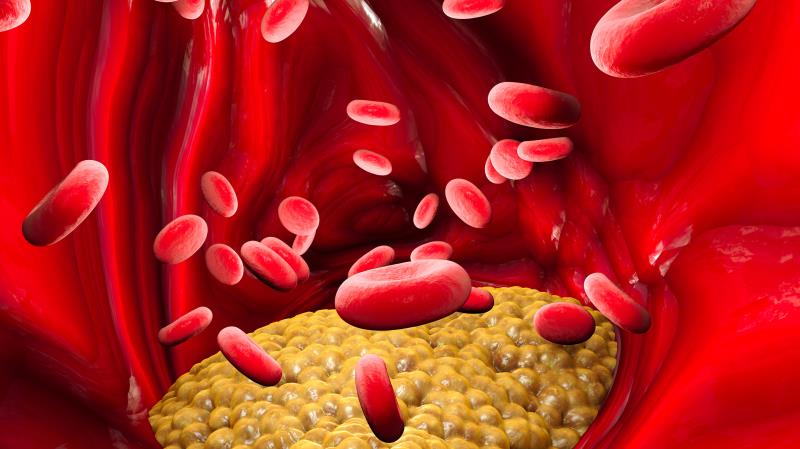
The small interfering RNA therapeutic agent inclisiran significantly reduced low-density lipoprotein cholesterol (LDL-C) levels in patients with heterozygous familial hypercholesterolaemia (FH), according to the ORION-9* trial.
The phase III, double-blind trial involved 482 adults (mean age 56 years, 47 percent male) with heterozygous FH who had a mean LDL-C level of 153.1 mg/dL at baseline. Participants were randomized in a 1:1 ratio to receive either subcutaneous injection of inclisiran sodium 300 mg (n=242) or placebo (n=240) on days 1, 90, 270, and 450. Patients were followed up until 540 days. [N Engl J Med 2020;doi:10.1056/NEJMoa1913805]
At day 510, LDL-C levels were significantly reduced by 39.7 percent in the inclisiran arm, while LDL-C levels were increased by 8.2 percent in the placebo arm (mean absolute change from baseline, -59.0 vs 9.9 mg/dL; between-group difference, -47.9 percent; p<0.001).
Similarly, those who received inclisiran had a significant decrease of 38.1 percent for the time-adjusted percent change in LDL-C levels between 90 and 540 days (mean absolute change from baseline, -56.9 vs 5.8 mg/dL; between-group difference, -44.3 percent; p<0.001), whereas those on placebo had an increase of 6.2 percent.
Inclisiran recipients also achieved significantly reduced PCSK9** levels compared with the placebo recipients at day 510 (mean absolute change from baseline, -282.6 vs 54.5 µg/L; between-group difference, -78.4 percent; p<0.001).
On subgroup analysis based on FH genotype, among patients with two identified FH variants, the percent change in LDL-C levels were reduced by 37.4 percent with inclisiran and increased by 3.8 percent with placebo (between-group difference, -41.2 percent).
A lower rate of serious adverse events (AEs) was observed among patients on inclisiran compared with those on placebo (7.5 percent vs 13.8 percent). However, more injection-site AEs occurred in the inclisiran arm vs the placebo arm (17.0 percent vs 1.7 percent), which were mostly considered mild in severity.
Even with an infrequent dosing regimen of inclisiran, adults with heterozygous FH who received inclisiran had significantly reduced LDL-C levels, with a favourable safety profile, the researchers concluded.
“[In addition,] the reduction in LDL-C levels of almost 50 percent with twice-yearly administration of inclisiran in patients with heterozygous FH … has the potential to improve their adherence to the treatment regimen,” the researchers said.
*ORION-9: Trial to evaluate the effect of inclisiran treatment on low-density lipoprotein cholesterol (LDL-C) in subjects with heterozygous familial hypercholesterolaemia (HeFH)
**PCSK9: Proprotein convertase subtilisin-kexin type 9